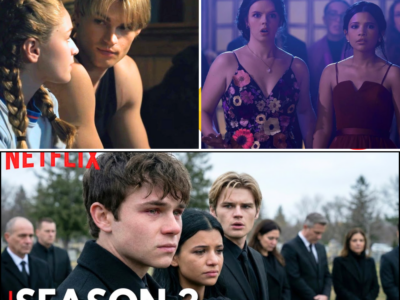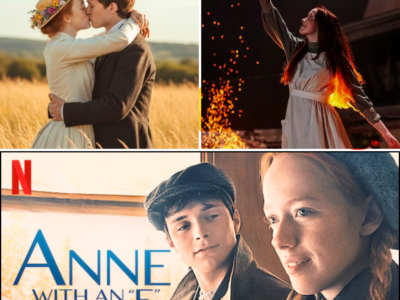
I’ve been a fan of the “Wicked” franchise for, well, long enough that you should address me as your queer elder. So when I saw all the posts and memes and TikToks insinuating that the ”Wicked” film was basically a lesbian love story, I was delighted. Sure, that’s not really how the books portray Glinda and Elphaba’s relationship, and no, they’re not a couple in the musical, but I am here for making them — and everything — gayer. Basically, I walked into the movie saying, “If they don’t kiss, I’m leaving.” But they didn’t kiss and I didn’t leave, so let’s queer a few things up.
Even if you haven’t seen the film, you likely know that ”Wicked” is a retelling of ”The Wizard of Oz” from the point of view of the wicked witch, Elphaba. Glinda, it turns out, has a complicated past with Elphaba. In the film, the relationship between the two feels like it could easily veer into classic enemies-to-lovers territory. Elphaba and Glinda hate each other, they love each other, they dance awkwardly, and there are meaningful glances. It’s sapphic catnip par excellence.
But here’s the thing: Glinda and Elphaba don’t fall in love. Well, they do fall in love; it’s just that it’s not like that. Is the whole film covertly queer coded? Yes. Is the author of the original book a gay man who has said in interviews that fantasy novels are important for young queers and intimated that Glinda may not be as straight as she seems? Also yes. Did Ariana Grande (aka Glinda) say that she thinks Glinda is “a little bit in the closet?” Most certainly.
So, yeah, we the queers had every reason to believe that ”Wicked” would be the queer romance we’ve been dreaming of. But it didn’t go that way, which I find weirdly refreshing. I think we’re selling the film short by begging it to be a queer romance when the real relationship between Glinda and Elphaba is so much more interesting. Glinda and Elphaba may never become lovers, but they are comrades, and isn’t that what we need more than anything right now?
Why settle for a potentially tepid on-screen kiss when we could have the revolution?
I’m not saying that ”Wicked” is the perfect radical film or that romance and revolution are incompatible. I’m just saying, who cares if two femmes kiss when they could take down Oz’s whole oppressive regime? Destroying fascism is the sexiest thing I can think of.
We don’t really need a lovestruck hero lusting after Grande’s bee-stung lips. What we need is a dignified heroine willing to sacrifice her personal desires for the benefit of the collective — and that’s exactly what Cynthia Erivo’s Elphaba delivers. Can we not be so desperate for personal love that we’re willing to forget about collective liberation?
While ”Wicked” doesn’t fully deliver on the collective liberation front — this is just Part 1, after all — it does a great job of insinuating that the evil fascists cannot win. And that, my friends, is way cooler than the flimsy fantasy of sexual tension between two hot actors — three, if you count Fiyero.
So, sure, you could call ”Wicked” some kind of queer love triangle, but I’m reading it as a budding platonic political throuple, a queer-adjacent radical polycule, if you will. One that chooses love for the people — and all sentient animals — over romance between individuals. Love big enough to hold both the insinuation of romance and also its absence. Or, as Erivo told The Gay Times, “They do have a real relationship. It is true love, which is probably why people are shipping it. What they build with each other is an unbreakable bond and love.”
Instead of reading ”Wicked” as just another case of the love that dare not speak its name, I choose to read it as a political parable — with the moral being that collective love is big enough to hold all of us if we’re willing to rise above the fray, if we’re dedicated to defying gravity. Now that is a love worth waiting for.


